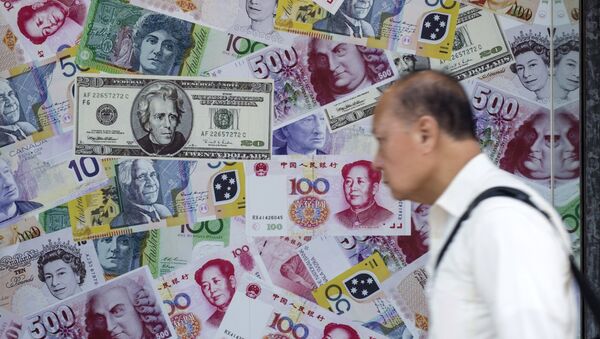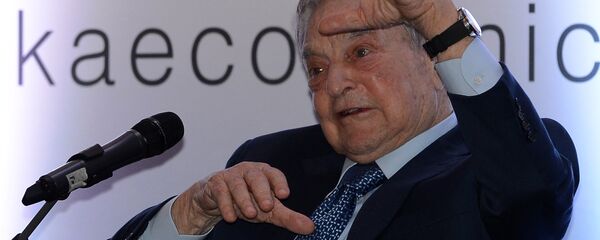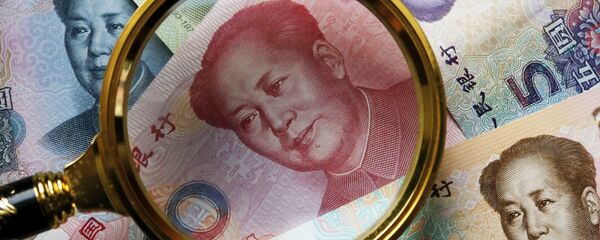The large bet, nearly 85 percent of the fund’s portfolio, would play if the yuan and Hong Kong dollar devaluate in the coming three years. Billions of dollars, including borrowed money, are at stake. Bass predicts that yuan will drop by 40 percent within this period.
In addition to Bass, other major players are George Soros’ partner and the former lead portfolio manager for Quantum Fund Stanley Druckenmiller, Greenlight Capital owner David Einhorn, and Appaloosa Management founder David Tepper, the article read.
During his speech at the World Economic Forum in Davos, Soros said that the Chinese economy is unlikely to avoid a "hard landing," a statement which has prompted expectations for the yuan shortening.
In terms of scope, the upcoming fall it will be much more serious than during the 2007 crisis, Bass assumed.
Expectations for the fall of yuan have driven capital outflow from China, including capital of both Chinese residents and foreign investors.
A currency war against yuan, unlike other state-regulated currencies, is risky since Beijing has proper tools to counter speculations. Earlier, the government bought a large amount of yuan from the market, and as a result the lending rate overnight soared to 66 percent, cutting funds for investors in short positions.
After an analysis, Hayman Capital concluded that the current amount of non-performing loans is nearly twenty percent and is likely to grow rapidly from the officially reported ten percent now. The government would have to burn trillions of dollars to re-capitalize banks which would weaken yuan. According to the article, the similar scenario was applied during the mortgage crisis in the US when the dollar started devaluating after the Federal Reserve began flowing cash into American banks.
Given its size, China is the world’s second-largest economy, and cannot be shaken by a few speculators, the Chinese newspaper People’s Daily reported. What is more, the Chinese financial system is equipped with tools to tackle any potential risks.
China has the biggest foreign reserve pool and a complete market regulation system. In addition, the government has launched a reform on the yuan exchange rate, and enhanced supervision on short-term speculative capital flow.
"Therefore, China has enough 'cards' in its hand to cope with risks brought by short selling," the article read.
Earlier this year, speculators attempted to profit from speculations in yuan, causing fluctuations in its exchange rate. In response, the People’s Bank of China introduced regular reserve-deposit ratio policy to offshore yuan and enhanced management on its liquidity. As a result, the exchange rate was effectively stabilized.
"China has enough tools to fend off impact on its currency. If the stabilization of the yuan’s rate is a stress test, then the result shows China is completely capable of safeguarding the stability of financial market. Those who try to short China will only cost themselves," the article concluded.




